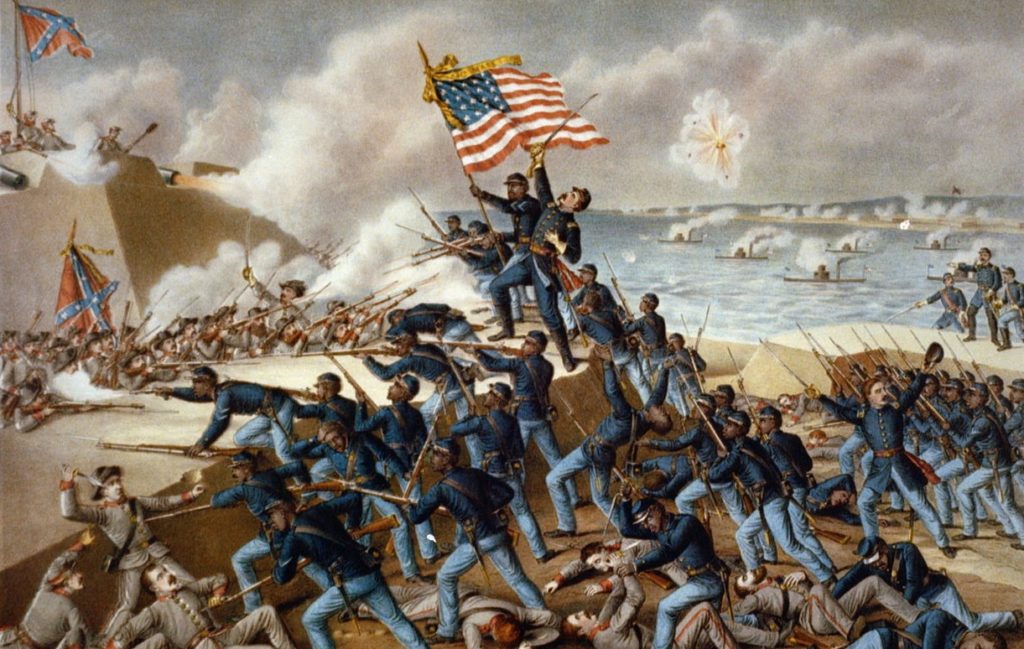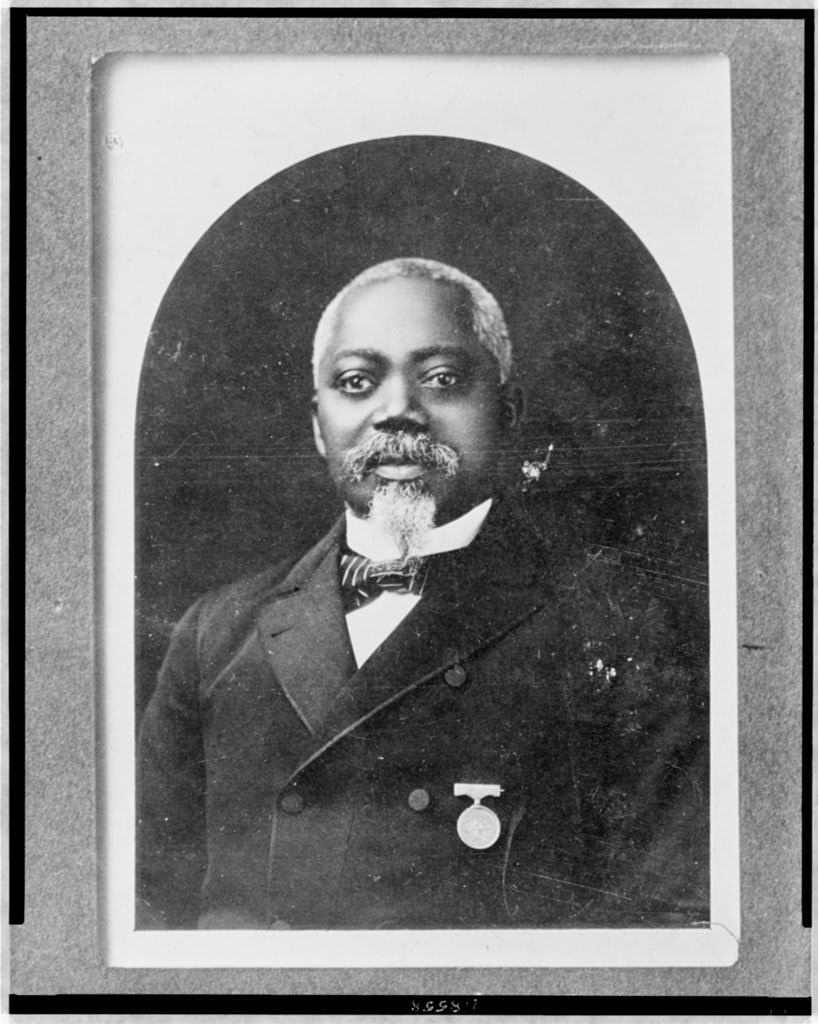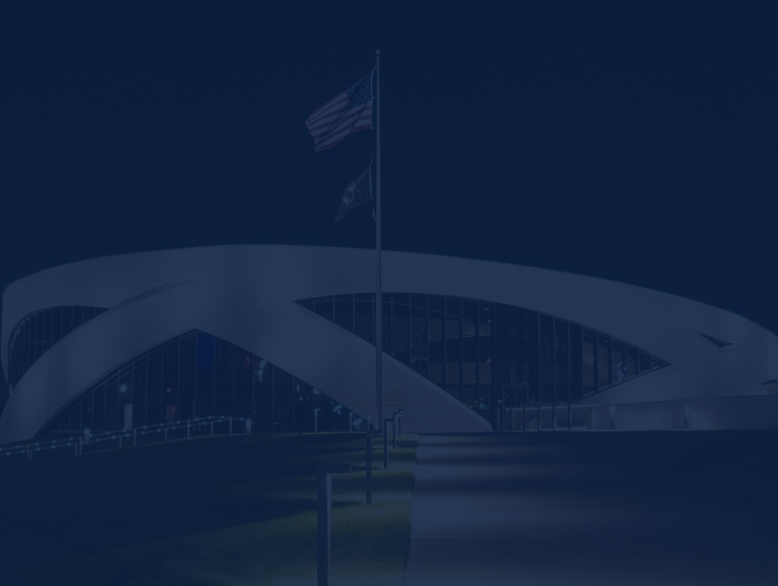
On January 1, 1863, President Abraham Lincoln’s Emancipation Proclamation went into effect granting African American men not only their freedom, but also the right to enlist in the armed services. By February, Governor John A. Andrew issued the first call to enlist African Americans in the Union military. Within two weeks, approximately 1,000 African American men enlisted in the 54th Massachusetts Volunteer Infantry regiment. They came from across the United States, to join the regiment even though the Confederacy had declared that any African American Union soldier captured would be sold into slavery. While the regiment was comprised entirely of African Americans, their commanding officers were white Americans such as Robert Gould Shaw. While reluctant to lead a regiment because he doubted they would see any combat, Shaw agreed and joined the 54th.
In July 1863, after asking for an opportunity to join the front lines, the 54th Infantry regiment joined the Second Battle of Fort Wagner. On July 18, Brigadier General George C. Strong asked Shaw to lead his men to charge forward and storm the ramparts of Fort Wagner. Shaw knew the charge was likely a suicide run. However, Shaw ordered his men to charge forward towards the fort. During the assault, approximately 280 out of 600 men from the 54th were killed including Shaw. Ultimately, the remaining members of the 54th were forced to retreat after realizing there were more Confederate soldiers than originally calculated. While the assault was not a military victory, it showed both Union and Confederate soldiers the bravery and determination of African American soldiers.

One notable story from the battle was that of Sergeant William H. Carney. During the battle, the regimental flag bearer was killed causing the American Flag to fall. Sergeant Carney immediately threw down his rifle and grabbed the flag, raising it high above the ground. Despite being shot during the assault, Sergeant Carney never let the flag fall again. He was awarded the Congressional Medal of Honor in 1900 which was simply sent in the mail without an official ceremony.
The 1989 movie “Glory” brought the story of the 54th Massachusetts Volunteer Infantry regiment to the silver screen challenging the belief that the Civil War was fought by white soldiers. Staring Morgan Freeman, Andre Braugher, Matthew Broderick, and Denzel Washington, the movie is a reminder that approximately 200,000 African Americans valiantly fought against the Confederacy to end slavery. One of the main themes of the movie is overcoming one’s prejudice and preconceived notions regarding people based solely on the color of their skin. Throughout the movie, the 54th Infantry regiment is belittled and stereotyped by other white soldiers and officers. However, by the end of the movie, they are shown to be brave and driven men willing to put their lives on the line to win the war and end slavery.
Today marks the 158th anniversary of the 54th Massachusetts Volunteer Infantry regiment’s assault on Fort Wagner. Come explore our museum and visit our timeline to learn more about the Civil War and celebrate the African American Veterans of the 54th Infantry regiment.
Resources:
Fort Wagner: Battery Wagner, Morris Island. American Battlefield Trust. https://www.battlefields.org/learn/civil-war/battles/fort-wagner
History.com Editors. (2021, January 25). The 54th Massachusetts Infantry. HISTORY. https://www.history.com/topics/american-civil-war/the-54th-massachusetts-infantry
Klein, C. (2018, September 4). “Glory” Regiment Attacks Fort Wagner, 150 Years Ago: On the 150th anniversary of the bloody battle that inspired the movie “Glory,” take a look back at the all-black 54th Massachusetts Regiment. HISTORY. https://www.history.com/news/glory-regiment-attacks-fort-wagner-150-years-ago
Levin, K.M. (2020, September 14). Why ‘Glory’ Still Resonates More Than Three Decades Later. Smithsonian Magazine. https://www.smithsonianmag.com/history/why-glory-still-resonates-more-three-decades-later-180975794/
Robert Gould Shaw. American Battlefield Trust. https://www.battlefields.org/learn/biographies/robert-gould-shaw
Zack, A. (2020, December 10). The 54th Massachusetts and the Second Battle of Fort Wagner. National Park Service. https://www.nps.gov/articles/the-54th-massachusetts-and-the-second-battle-of-fort-wagner.htm



